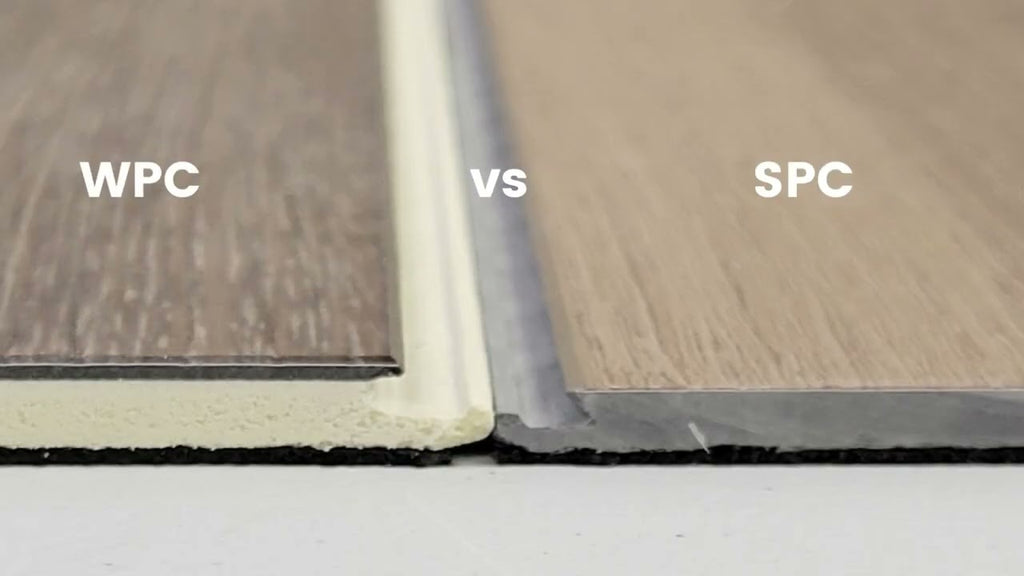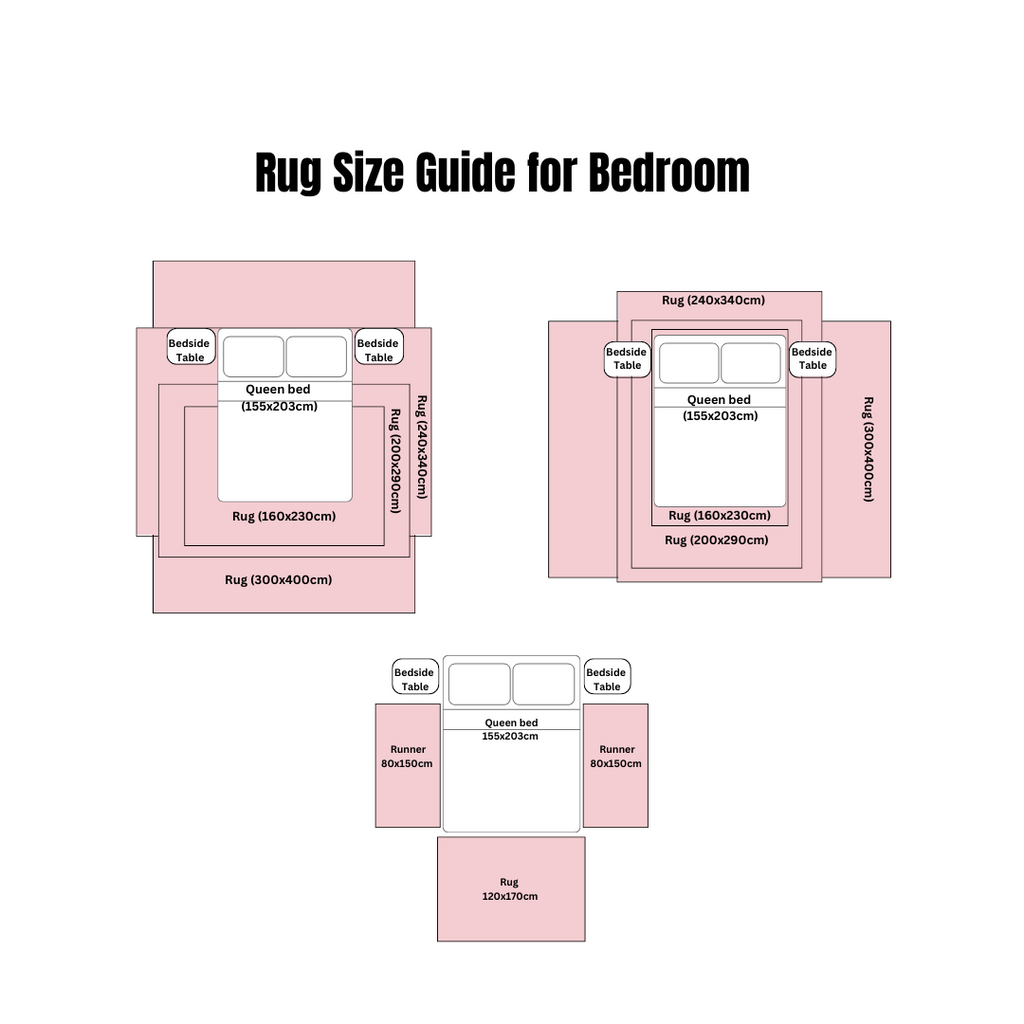What is the Difference Between WPC and SPC Flooring and Which One Should You Opt For?

When it comes to choosing the right flooring for your home or commercial space, the options can be overwhelming. Two popular choices in the world of luxury vinyl flooring are WPC (Wood Plastic Composite) and SPC (Stone Plastic Composite) flooring. Both offer durability, aesthetic appeal, and ease of maintenance, but there are key differences that can influence your decision. In this blog, we’ll explore what sets WPC and SPC flooring apart and help you determine which one is the best fit for your needs.
Understanding WPC Flooring
Composition and Structure
WPC flooring is made from a combination of wood flour/powder and thermoplastics. This blend is then heated and extruded to form planks or tiles. The core of WPC flooring is its most distinguishing feature, offering a robust yet resilient base that combines the natural warmth of wood with the durability of plastic. Additionally, many WPC floors include a foam or cork underlayer for added comfort and sound absorption.
Key Features
-
Comfort and Insulation: WPC flooring has a thicker core compared to SPC, which makes it softer underfoot and provides better insulation. This can be especially beneficial in colder climates or in spaces where you spend a lot of time standing, like kitchens. The added thickness also helps to reduce foot fatigue and provides a warmer surface to walk on, which can be particularly pleasant in living areas and bedrooms.
-
Water Resistance: While not entirely waterproof, WPC is highly water-resistant. It can handle spills and moisture without warping, making it a suitable choice for bathrooms, kitchens, and basements. This water resistance also makes WPC flooring less prone to mold and mildew growth compared to traditional wood flooring.
-
Aesthetic Versatility: WPC flooring often comes in a wide variety of colors and textures, mimicking the look of natural wood or stone, which can add a touch of elegance to any room. Advanced printing technologies allow WPC to replicate the intricate details of real wood grains and stone patterns, providing a high-end look without the high-end cost.
-
Sound Absorption: The thickness and composition of WPC provide excellent sound absorption, reducing noise from footsteps and making it a quieter flooring option. This can be particularly beneficial in multi-story homes or apartment buildings where sound transmission between floors can be a concern.

Pros and Cons of WPC Flooring
Pros:
- Comfortable underfoot
- Good thermal and sound insulation
- Highly water-resistant
- Aesthetic versatility
Cons:
- Generally more expensive than SPC
- Slightly less durable under heavy loads or high traffic
Understanding SPC Flooring
Composition and Structure
SPC flooring consists of a core made from limestone and stabilizers, creating a dense and incredibly durable base. This rigid core makes SPC flooring a tough contender in the luxury vinyl market, suitable for both residential and commercial applications. The stone content in SPC's core gives it superior strength and stability, making it resistant to impacts and heavy foot traffic.
Key Features
-
Durability and Stability: SPC flooring is known for its exceptional durability. The dense core provides resistance to impacts, heavy loads, and high traffic, making it an ideal choice for commercial spaces, offices, and homes with pets or active children. Unlike WPC, SPC does not dent or deform easily under pressure, maintaining its appearance and performance over time.
-
Waterproof: Unlike WPC, SPC flooring is completely waterproof. This makes it an excellent choice for areas prone to moisture, such as bathrooms, kitchens, laundry rooms, and basements. Its waterproof nature also means that SPC can be installed in areas where water exposure is a concern, such as entryways and mudrooms.
-
Ease of Installation: SPC flooring often features a click-lock installation system, making it easy for DIY enthusiasts to install. It can also be installed over existing flooring, which can save time and money during renovations. The rigidity of SPC planks helps them lay flat, even over uneven subfloors, simplifying the installation process.
-
Temperature Tolerance: The rigid core of SPC flooring allows it to withstand extreme temperature variations without expanding or contracting, making it suitable for use in sunrooms or areas with fluctuating temperatures. This stability makes SPC a reliable choice for environments with significant temperature swings, such as cabins or vacation homes.

Pros and Cons of SPC Flooring
Pros:
- Highly durable and stable
- Completely waterproof
- Easy to install
- Suitable for high-traffic areas
Cons:
- Less comfortable underfoot compared to WPC
- Limited sound absorption
- Can feel colder in cooler climates
WPC vs. SPC Flooring: Which Should You Opt For?
Consider Your Space and Lifestyle
-
Residential vs. Commercial Use: If you’re choosing flooring for a commercial space or a high-traffic area in your home, SPC is likely the better option due to its superior durability and stability. For residential spaces where comfort is a priority, such as living rooms and bedrooms, WPC may be more suitable. WPC's softer feel and better insulation can make it a more comfortable and inviting option for home environments.
-
Moisture-Prone Areas: Both WPC and SPC are good choices for moisture-prone areas, but SPC’s waterproof nature makes it the better choice for bathrooms, laundry rooms, and basements. If you have concerns about prolonged water exposure or potential flooding, SPC's impermeability provides an extra layer of protection.
-
Comfort and Warmth: If comfort underfoot and thermal insulation are important to you, WPC is the way to go. Its thicker core provides a softer, warmer feel, making it more comfortable to walk on, especially in colder climates. WPC's ability to retain heat makes it a cozy option for bedrooms and living areas.
-
Budget Considerations: While both options are generally more affordable than natural wood or stone flooring, WPC tends to be more expensive than SPC. If budget constraints are a major factor, SPC offers excellent value for money without compromising on quality or durability. However, consider the long-term benefits and potential savings in maintenance and replacement costs when making your decision.
Aesthetic Preferences
Both WPC and SPC flooring come in a wide range of designs, colors, and textures. If you have a specific aesthetic in mind, consider the available options in both categories to find the perfect match for your interior design. WPC may offer a slight edge in terms of mimicking the natural look and feel of wood. The advanced printing techniques used in WPC flooring can create highly realistic textures and patterns, enhancing the overall visual appeal of your space.
Installation and Maintenance
Both WPC and SPC flooring are relatively easy to install and maintain. However, if you’re planning a DIY installation, you might find SPC’s click-lock system slightly easier to work with. In terms of maintenance, both types are easy to clean and require minimal upkeep, but it’s always a good idea to follow the manufacturer’s guidelines to ensure longevity. Regular sweeping and occasional mopping with a damp cloth are usually sufficient to keep both WPC and SPC floors looking their best.
To Conclude
Choosing between WPC and SPC flooring ultimately depends on your specific needs, preferences, and budget. WPC offers superior comfort, warmth, and sound insulation, making it ideal for residential spaces where these factors are important. SPC, on the other hand, provides unmatched durability, stability, and water resistance, making it perfect for commercial spaces, high-traffic areas, and moisture-prone rooms.
By considering the unique features, pros, and cons of each type of flooring, you can make an informed decision that enhances the beauty and functionality of your space. Whether you opt for the comfort of WPC or the resilience of SPC, both options promise to deliver a stylish, durable, and practical flooring solution.
If you’re looking for expert advice and a wide selection of WPC and SPC flooring options, visit Adore Rugs. For a free measure and quote, don’t hesitate to contact us.
SHARE:



